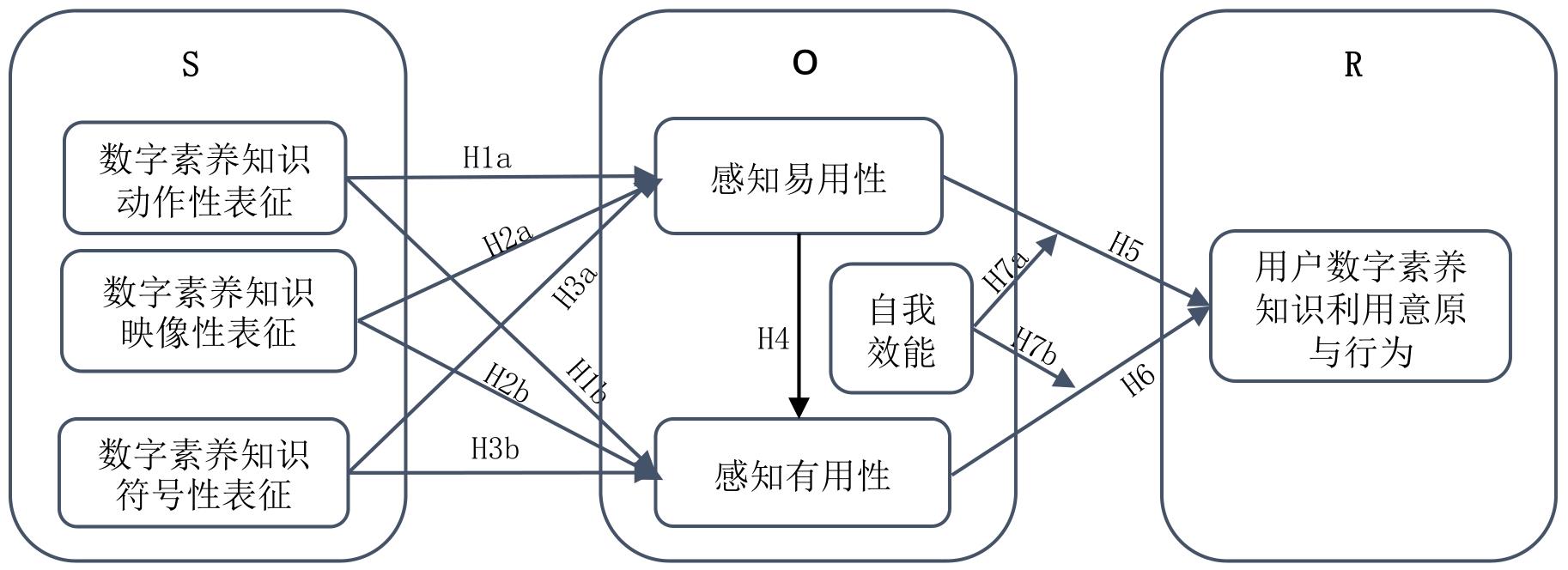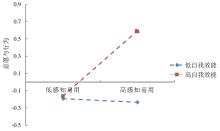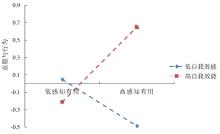| 1 |
吴建中. 高质量发展有赖于全民数字素养的普及与提升[J]. 图书馆论坛, 2022, 42(3): 7-8.
|
|
WU J Z. High-quality development depends on the improvement of national digital literacy[J]. Library tribune, 2022, 42(3): 7-8.
|
| 2 |
中央网信办等四部门. 2024年提升全民数字素养与技能工作要点[EB/OL]. [2024-02-21].
|
| 3 |
中共中央网络安全和信息化委员会办公室. “十四五”国家信息化规划[EB/OL]. [2022-11-04].
|
| 4 |
史安斌, 刘长宇. 全球数字素养: 理念升维与实践培育[J]. 青年记者, 2021(19): 89-92.
|
|
SHI A B, LIU C Y. Global digital literacy: Concept upgrading and practice cultivation[J]. Youth journalist, 2021(19): 89-92.
|
| 5 |
蒋富强, 闫超阳. 数字时代大学生数字素养培育的困境及应对[J]. 中国教育信息化, 2024, 30(6): 102-111.
|
|
JIANG F Q, YAN C Y. Dilemma and countermeasures of cultivating digital literacy for college students in the digital era[J]. Chinese journal of ICT in education, 2024, 30(6): 102-111.
|
| 6 |
江婕, 王海燕, 于文婷. 智慧教室环境下多模态学习活动评价指标设计与应用[J]. 中国教育信息化, 2024, 30(11): 120-128.
|
|
JIANG J, WANG H Y, YU W T. Design and application of multimodal learning activity evaluation index in smart classroom environment[J]. Chinese journal of ICT in education, 2024, 30(11): 120-128.
|
| 7 |
陈纯槿, 郅庭瑾. 正确利用数字资源有效提升学习质量[N]. 光明日报, 2024-01-30(13).
|
| 8 |
中共中央网络安全和信息化委员会办公室. 提升全民数字素养与技能行动纲要[EB/OL]. [2022-11-04].
|
| 9 |
中华人民共和国教育部. 教师数字素养(GB/T 41458-2022)[S]. 北京: 中国标准出版社, 2022.
|
| 10 |
彭聘龄, 张必隐. 认知心理学[M]. 杭州: 浙江教育出版社, 2004.
|
|
PENG P L, ZHANG B Y. Cognitive psychology[M]. Hangzhou: Zhejiang Education Publishing House, 2004.
|
| 11 |
GARCÍA-PEÑALVO F J. Digital competence: Framework and challenges[J]. International journal of information and communication technology education, 2020, 16(3): 1-15.
|
| 12 |
刘宝存, 岑宇. 以数字素养框架推动数字化人才培养[N]. 中国教育报, 2023-02-27(03).
|
| 13 |
冯友梅, 袁晓蕾, 王晨, 等. 基础教育领域面向思维可视化的图形语义系统设计[J]. 电化教育研究, 2023, 44(9): 100-107.
|
|
FENG Y M, YUAN X L, WANG C, et al. Design of graphic semantic system for thinking visualization in basic education[J]. E-education research, 2023, 44(9): 100-107.
|
| 14 |
李政涛. 图像时代的教育论纲[J]. 教育理论与实践, 2004, 24(15): 1-4.
|
|
LI Z T. The education in time of imgae[J]. Theory and practice of education, 2004, 24(15): 1-4.
|
| 15 |
李云星. 图像的育人价值与教育的图像转向: 以符号表征与交流为视角[J]. 首都师范大学学报(社会科学版), 2019(1): 172-177.
|
|
LI Y X. The educational value of images and the image turn in education[J]. Journal of capital normal university (social sciences edition), 2019(1): 172-177.
|
| 16 |
HOWES D. Sensing culture: Engaging the senses in culture and social theory[M]. Ann Arbor: The University of Michigan Press, 2003.
|
| 17 |
MEHRABIAN A, RUSSELL J A. An approach to environmental psychology[M]. Cambridge, Mass., M.I.T. Press: 1974: 132-135
|
| 18 |
姚小英. 突发公共卫生事件下畜禽产品消费风险感知对信息采纳影响作用机制研究[D]. 南昌: 南昌大学, 2023.
|
|
YAO X Y. Study on the influence mechanism of consumption risk perceptionof livestock and poultry products on information adoption underpublic health emergencies[D]. Nanchang: Nanchang University, 2023.
|
| 19 |
周涛, 刘佳怡, 邓胜利. 基于SOR模型的在线知识社区用户潜水行为研究[J]. 情报杂志, 2022, 41(7): 160-165, 83.
|
|
ZHOU T, LIU J Y, DENG S L. A study on lurking behavior of online knowledge community users based on SOR model[J]. Journal of intelligence, 2022, 41(7): 160-165, 83.
|
| 20 |
潘涛涛, 吕英杰. 在线健康社区中基于SOR模型的用户参与行为影响因素研究[J]. 情报资料工作, 2022, 43(2): 76-83.
|
|
PAN T T, LU Y J. Research on influencing factors of user participation behavior based on SOR model in online health community[J]. Information and documentation services, 2022, 43(2): 76-83.
|
| 21 |
朱红灿, 胡新, 王新波. 基于S-O-R框架的政府数据开放平台用户持续使用意愿研究[J]. 现代情报, 2018, 38(5): 100-105, 116.
|
|
ZHU H C, HU X, WANG X B. The user's continuance use intention of government data open platform based on the S-O-R framework[J]. Journal of modern information, 2018, 38(5): 100-105, 116.
|
| 22 |
徐孝娟, 赵宇翔, 史如菊, 等. SOR理论在国内图书情报学领域的采纳: 溯源、应用及未来展望[J]. 情报资料工作, 2022, 43(5): 98-105.
|
|
XU X J, ZHAO Y X, SHI R J, et al. The adoption of SOR theory in the field of library and information science in China: Traceability, application and future prospects[J]. Information and documentation services, 2022, 43(5): 98-105.
|
| 23 |
阳长征. 网络突发事件语意表征对用户持续分享意愿影响研究[J]. 情报杂志, 2020, 39(6): 143-151.
|
|
YANG C Z. Research on effect of network semanteme representation on continuous intention of sharing information in crisis event[J]. Journal of intelligence, 2020, 39(6): 143-151.
|
| 24 |
DAVIS F D. Perceived usefulness, perceived ease of use, and user acceptance of information technology[J]. MIS quarterly, 1989, 13(3): 319.
|
| 25 |
BANDURA A. Self-efficacy: Toward a unifying theory of behavioral change[J]. Advances in behaviour research and therapy, 1978, 1(4): 139-161.
|
| 26 |
李白杨, 孙榕. 基于“知识-技能”导航的人工智能素养通识教育课程构建[J]. 农业图书情报学报, 2024, 36(8): 34-42.
|
|
LI B Y, SUN R. Construction of an AI literacy general education curriculum based on "knowledge-skills" navigation[J]. Journal of library and information science in agriculture, 2024, 36(8): 34-42.
|
| 27 |
徐芳, 金小璞. 认知心理学视角的情报分析过程模型构建[J]. 图书情报工作, 2011, 55(16): 16-19, 45.
|
|
XU F, JIN X P. Study on the construction of the model of intelligence analysis process from the perspective of cognitive psychology[J]. Library and information service, 2011, 55(16): 16-19, 45.
|
| 28 |
周霞, 王萍, 王美月, 等. 政府开放数据用户认知影响因素研究: 先验图式调节效应[J]. 情报科学, 2022, 40(9): 159-166.
|
|
ZHOU X, WANG P, WANG M Y, et al. Influencing factors of government open data user cognition: The moderating effect of transcendental Schema [J]. Information science, 2022, 40(9): 159-166.
|
| 29 |
薛可, 阳长征, 余明阳. 媒介传播中信息表征形式对受众社会化影响研究[J]. 国际新闻界, 2017, 39(8): 103-114.
|
|
XUE K, YANG C Z, YU M Y. Research on the effect of information representation styles on socialization of audience in media communication[J]. Chinese journal of journalism & communication, 2017, 39(8): 103-114.
|
| 30 |
REDDY M C, JANSEN B J. A model for understanding collaborative information behavior in context: A study of two healthcare teams[J]. Information processing & management, 2008, 44(1): 256-273.
|
| 31 |
朱光, 李凤景, 沈雨萌, 等. 社交媒体隐私政策的阅读意愿研究: 基于TAM模型与自我效能理论视角[J]. 现代情报, 2022, 42(1): 150-166.
|
|
ZHU G, LI F J, SHEN Y M, et al. Research on reading willingness of privacy policy in social media context: Based on the perspective of TAM model and self-efficacy theory[J]. Journal of modern information, 2022, 42(1): 150-166.
|
| 32 |
SUH M, HSIEH G. The "had mores": Exploring Korean immigrants' information behavior and ICT usage when settling in the United States[J]. Journal of the association for information science and technology, 2019, 70(1): 38-48.
|
| 33 |
BANDURA A. Self-efficacy mechanism in human agency[J]. American psychologist, 1982, 37(2): 122-147.
|
| 34 |
WEIMER A A, PARAULT DOWDS S J, FABRICIUS W V, et al. Development of constructivist theory of mind from middle childhood to early adulthood and its relation to social cognition and behavior[J]. Journal of experimental child psychology, 2017, 154: 28-45.
|
| 35 |
成全, 刘彬彬. 用户跨平台学术信息搜索行为影响因素研究: 注意力控制与自我效能的调节作用[J]. 情报科学, 2022, 40(2): 82-90.
|
|
CHENG Q, LIU B B. Impacting factors of users' cross-platform academic information seeking behavior: The moderating role of attentional control and self-efficacy[J]. Information science, 2022, 40(2): 82-90.
|
| 36 |
LEE Y K. Impacts of digital technostress and digital technology self-efficacy on fintech usage intention of Chinese gen Z consumers[J]. Sustainability, 2021, 13(9): 5077.
|
| 37 |
周霞. 政府开放数据用户认知模型构建及认知机制研究[D]. 长春: 吉林大学, 2022.
|
|
ZHOU X. Research on the cognitive model construction and cognitive mechanism of government open data users[D]. Changchun: Jilin University, 2022.
|
| 38 |
GRAFTON S T, DE C HAMILTON A F. Evidence for a distributed hierarchy of action representation in the brain[J]. Human movement science, 2007, 26(4): 590-616.
|
| 39 |
VIDAL R, MA Y, SASTRY S S. Image representation[M]//Generalized Principal Component Analysis. New York, NY: Springer New York, 2016: 349-376.
|
| 40 |
常红, 田野. 新手用户对信息素养教育的感知价值研究: 基于扎根理论的探索[J]. 图书情报工作, 2020, 64(22): 96-106.
|
|
CHANG H, TIAN Y. Research on the perceived value of novice users to information literacy education: Based on grounded theory[J]. Library and information service, 2020, 64(22): 96-106.
|
| 41 |
查先进, 李力, 严亚兰, 等. 数字图书馆环境下信息有用性和信息获取影响因素研究: 信息获取自我效能的调节效果[J]. 情报学报, 2017, 36(7): 669-681.
|
|
ZHA X J, LI L, YAN Y L, et al. Research on impacting factors of information usefulness and information acquisition in the context of digital libraries: The moderating effect of self-efficacy in acquiring information[J]. Journal of the China society for scientific and technical information, 2017, 36(7): 669-681.
|










